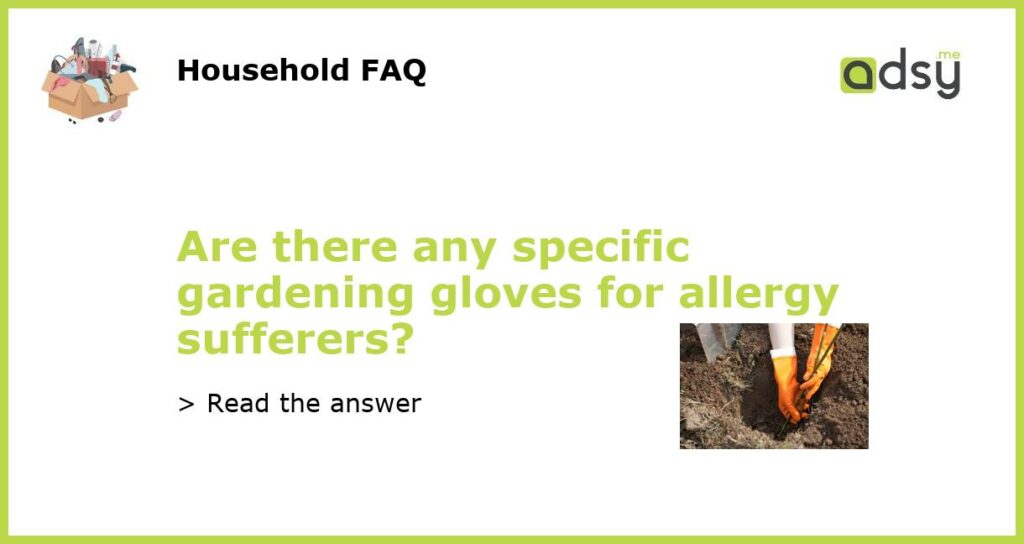Gardening and Allergies
If you’re an allergy sufferer, gardening can be a challenge. The pollen and other irritants in plants can exacerbate allergies and make gardening uncomfortable or even unbearable. One solution is to wear gloves to prevent direct contact with the irritants, but are there any specific gardening gloves for allergy sufferers? Let’s take a look.
Gloves for Allergy Sufferers
Many gardening gloves are designed to protect your hands from thorns, cuts, and abrasions, but they may not protect against allergens. However, there are some gloves on the market that are specifically designed for allergy sufferers. For example, the Gloves for Sensitive Skin are made from hypoallergenic materials and are perfect for those with skin sensitivities or allergies. The gloves are also puncture-resistant and provide good grip, making them suitable for gardening tasks.
Choosing the Right Material
When looking for gloves for allergy sufferers, it’s important to choose the right material. Gloves made from natural latex may cause skin irritation in some individuals, so it’s best to look for gloves made from nitrile or neoprene, which are hypoallergenic. These materials are also puncture-resistant and durable, making them ideal for gardening tasks.
Fitting and Comfort
Gloves for allergy sufferers should fit well and be comfortable to wear for extended periods. Look for gloves that are labeled as “skin-friendly” or “dermatologically tested” to ensure they won’t cause skin irritation or allergic reactions. Additionally, gloves with adjustable wrist closures can provide a snug fit that keeps out irritants.
Protecting Your Skin from Allergens while Gardening
Gardening can be a therapeutic and enjoyable activity, even for those with allergies, provided proper precautions are taken. Gloves for allergy sufferers should be made from hypoallergenic materials such as nitrile or neoprene, fit well, and be comfortable to wear for extended periods. By choosing the right gloves and taking other allergen-reducing measures, such as wearing a mask and gardening during non-peak pollen times, allergy sufferers can safely and comfortably enjoy their time in the garden.






